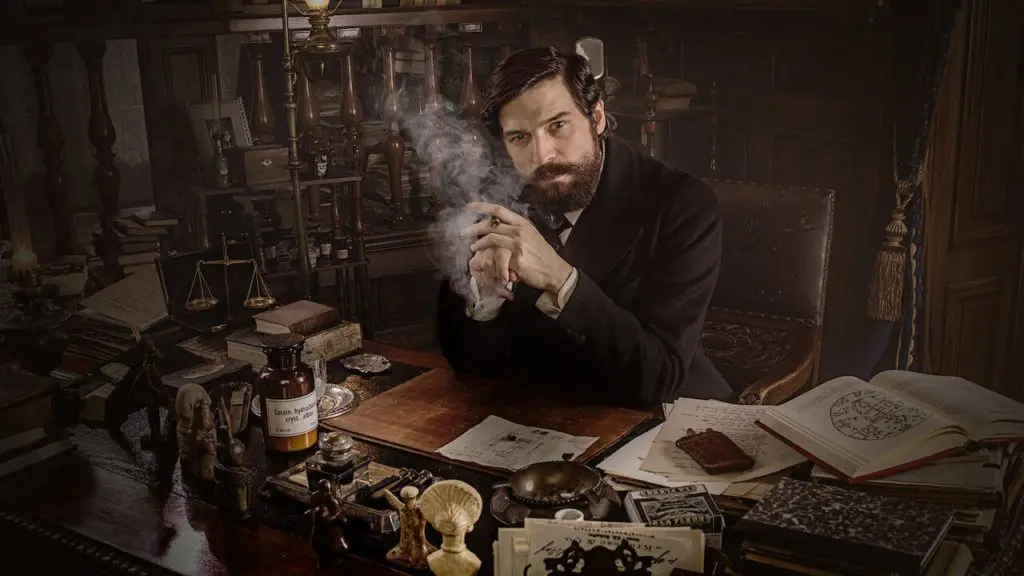Summary
Unashamedly pulpy revisionist insanity that reimagines Sigmund Freud as a coked-up paranormal investigator, and will appeal to about as many people as it puts off.
This review of Freud is spoiler-free.
Freud is, let’s be frank, far from a perfect TV – in many ways, in fact, it’s quite bad in all the traditional ways we tend to judge such things. Created by Marvin Kren, Stefan Brunner and Benjamin Hessler, the eight-part show is mostly an exercise in throwing ideas at the wall and seeing what sticks, happily unburdened by the limitations of network TV or the standards of prestige fare. It has little concern for notions of tone, genre, and least of all history, reveling in indulgent, soapy debauchery throughout 19th-Century Vienna.
This kind of ridiculous historical fiction will appeal to plenty of people and be utterly off-putting to just as many, though you can’t really fault the show for its reimagining of Sigmund Freud (Robert Finster) as a coked-up “Jewish charlatan” whose penchant for hypnotism and theories of the unconscious are widely mistrusted as a shtick until they can be put towards solving the mutilation of prostitutes by local Inspectors Kiss (Georg Friedrich) and Poschacher (Christoph F Krutzler).
Any feints the show makes in the direction of grounded sleuthing are rapidly abandoned in favor of séances, psychosexuality, drug-addled ventures into Hellish dreamscapes, full-frontal nudity, violence, various formal quirks, and much more besides, which makes for a heady cocktail of period debauchery and pulpy storytelling that’ll doubtlessly rub historians the wrong way – though perhaps that’s not entirely a bad thing.
My contention is that Freud disappears so far into its own lunacy that at some point around the middle it stops hanging together as a story. And that’s kind of a problem, obviously. Various subplots muddy the waters and amount to very little in the grand scheme of things, and the overarching narrative eventually borders on the nonsensical, even if it does have the decency, rare among Netflix shows, to actually have an ending.
One can’t help but think that revisionist history is best when it’s as ridiculous as possible, and Freud feels most at home in its weirdness, but the show it eventually becomes is sharing space with a different, slightly more reserved version, and the two don’t necessarily work as part of the same story. There is lots to like or at least be entertained by here, but there’s also a lot that’s puzzling and indulgent to a harmful degree. Ultimately where you stand on the show will be determined by what you really want a story about Sigmund Freud to be – while it’s unlikely anyone will have imagined something quite like this, there’s a good chance they will be pleasantly surprised by its surreality all the same.




